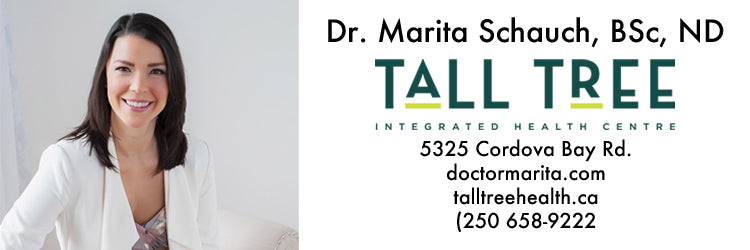How many women, especially moms, have you spoken to lately who feel fabulous - balanced, rested and ready to conquer the world? I’d guess the answer is somewhere between none and few. In my clinical practice, I treat hundreds of women each year and I hear the same concerns over and over – “I have no energy – I can’t sleep – I’m so stressed!” Hormone balance plays an integral part in all these health concerns and countless others.
As a naturopathic physician, I approach all health issues by looking at the person as a whole. When a woman comes into my practice with hormone concerns, I always start by addressing the foundation of health: diet, lifestyle and exercise. No single food or exercise will magically align hormones, but it’s all the little steps that add up.
Here are a few building blocks for a healthy hormone balance that will help you feel better and have more energy.
STEP 1: Optimize Nutrition
Cleaning up your diet can bring the body back into a state of wellness. By being mindful of your intake of certain foods and nutrients, your body can regulate its natural production of hormones, namely estrogen and progesterone. Here’s what to keep in mind:
- Ensure you’re getting enough protein. Lean, organic, grass-fed animal protein, free-range eggs, nuts and seeds and legumes and wild caught fish are some of the recommendations for my patients. Adequate protein helps to balance blood sugars, provides energy for hormone production and healthy immune function.
- Include healthy fats, which help to reduce inflammation in the body. Adequate intake of fats helps improve mood and memory, ease PMS symptoms, and aid fertility. Healthy fats are also the building blocks for your hormones.
- Include supplements such as B-vitamins, magnesium, and vitamin D. These supplements help with sleep, supporting the stress response, and reducing inflammation.
STEP 2: Balance Blood Sugar
Balancing blood sugar levels is crucial in reversing insulin resistance. When you have insulin resistance, you often carry weight around your central abdomen, have intense sugar and carb cravings, have acne or thinning hair, and have difficulty losing weight. Balancing your blood sugars is especially important for PCOS (polycystic ovarian syndrome). Ensuring you are consuming enough protein and reducing your intake of added refined sugars and simple carbohydrates will help to ease these symptoms.
STEP 3: Manage your stress
Since hormones are intricately connected, an imbalance in stress hormones can lead to changes in your cycle and overall well-being. Stress can impact your hormones in many ways, including increased menstrual pain, irregular cycles, PMS, infertility, exacerbated menopausal symptoms, and anxiety.
Stress can also lead to changes in sleep cycles. Getting a quality, deep restorative sleep every night is essential for hormone balance.
Reduce your stress by incorporating yoga, meditation, exercise, time in nature, and socializing with the people you love.
Supplements for stress reduction include: B vitamins, magnesium and adaptogenic herbs such as Rhodiola and Ashwagandha.
STEP 4: Test & Optimize Thyroid Function
Thyroid function can definitely impact hormone balance. When the thyroid is underactive, it can lead to heavier periods, longer cycles, infertility, difficulty losing weight, constipation, dry skin, fatigue, difficulty concentrating, and feeling cold. Every woman should be getting their thyroid tested every year in order to address these underlying issues. Make sure you ask your ND or MD to order a full thyroid panel which includes TSH, Free T4, Free T3 and thyroid antibodies.
STEP 5: Reduce Toxins & Support Detox Pathways
Healthy hormone balance also depends on how well your liver and digestive system are functioning.
To help support liver detoxification pathways, include turmeric, cruciferous vegetables, such as broccoli, and supplements such as DIM, Indole-3-carbinol, calcium D-glucarate, and sulforaphane. Consider a probiotic or integrate fermented foods to ensure a healthy microbiome.
To reduce toxins, minimize your exposure to chemicals. Be wary of phthalates in plastics and fragrances, bisphenol A in the plastic lining of canned foods and hard plastic toys, chemicals in nail polish, makeup, and beauty products, and parabens, the preservative in many shampoos, sunscreens, deodorants and toothpaste.
An excellent resource that I often recommend to my patients is the Environmental Working Group: www.ewg.org. Visit their site to find information about how you can clean up your home one small step at a time and minimize your exposure to many hormone disruptors.
I have seen such amazing results when a hormone-healthy diet and lifestyle are combined with key dietary supplements.
You don’t have to be super mom, but you can be balanced, rested and ready to conquer the world!












